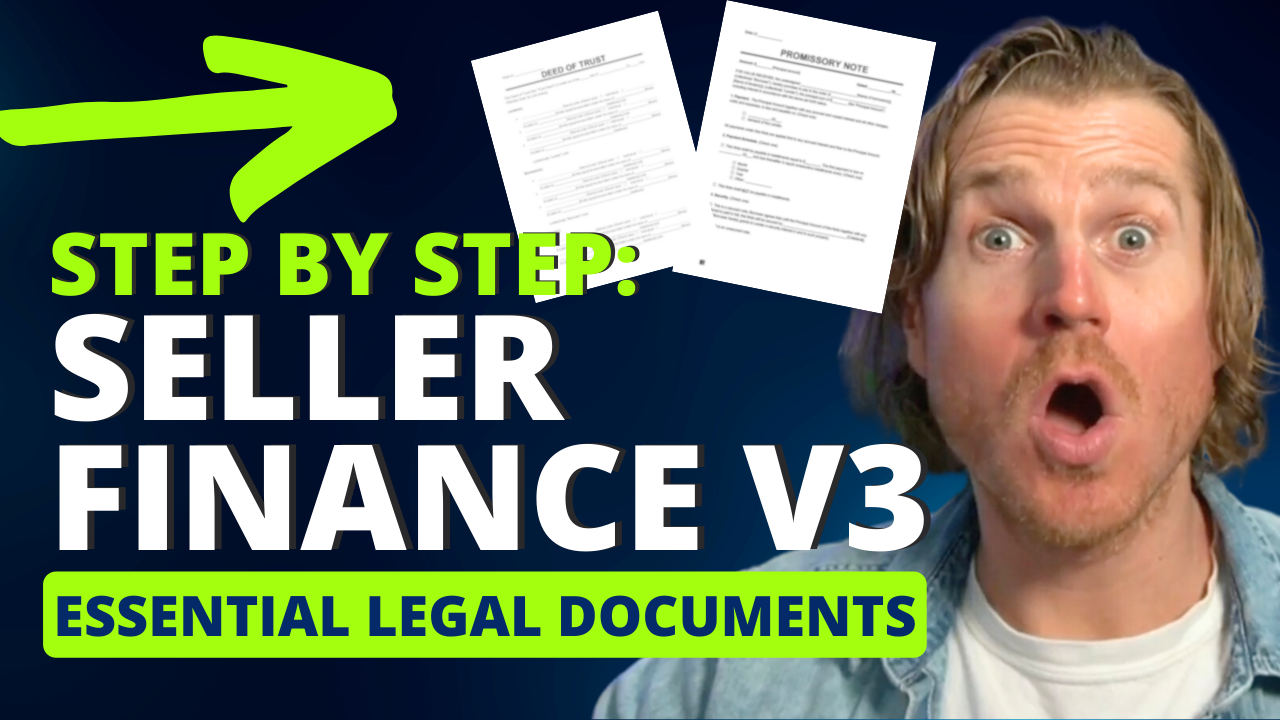Essential Legal Documents for Closing Your Seller Finance Deal | Seller Finance Master Class | Video #3

Welcome to the Seller Financing Series, where we explore the ins and outs of using seller financing to purchase investment properties. In this blog post, we will focus on the crucial stages of the process: from negotiating the deal to completing due diligence, obtaining legal documents such as the Purchase Agreement and Deed of Trust, and finally crossing the finish line with a successful closing. If you're looking to leverage seller financing to build your real estate portfolio, this comprehensive guide will provide valuable insights and actionable steps. Let's dive in!
Stage 1: Getting the Seller's Agreement: In this stage, we discuss how to secure the seller's agreement for financing. We'll explore strategies for presenting multiple options, analyzing deals using a flip calculator, and negotiating favorable terms. The goal is to reach an agreement that benefits both parties and sets the foundation for a successful seller financing deal.
Stage 2: Due Diligence and Documentation: Before finalizing the purchase, conducting thorough due diligence is essential. We'll delve into the due diligence process, covering aspects such as home inspections, pest inspections, and reviewing the seller's disclosures. This stage ensures you have a clear understanding of the property's condition, potential risks, and any necessary adjustments to your analysis.
Additionally, we'll discuss the importance of engaging a real estate attorney to assist with drafting the necessary legal documents. The blog will outline key documents like the Purchase Agreement, Promissory Note, and Deed of Trust, highlighting their purpose and how they protect the interests of both parties involved.
Stage 3: Closing the Deal: The final stage focuses on crossing all the T's and dotting all the I's to close the sale successfully. We'll discuss the significance of a final walkthrough to verify the property's condition and mitigate any surprises. Understanding the closing documents, ensuring accuracy, and reviewing all fees are crucial steps before signing. The blog will also touch on the transfer of funds, recording the deed of trust, and the ultimate transfer of ownership.
Conclusion: Mastering the seller financing process can empower real estate investors to expand their portfolios without relying on traditional bank loans. By following a structured approach, conducting due diligence, and securing the necessary legal documents, you can navigate the seller financing landscape with confidence. Remember, each state may have specific requirements, so consulting a real estate attorney is essential. Now that you're equipped with this step-by-step guide, you're ready to embark on your seller financing journey and build a thriving real estate empire. Happy investing!
Note: This blog post is a summary of the provided video transcript. Please ensure you consult legal professionals and conduct thorough research for specific details and guidelines in your jurisdiction.





